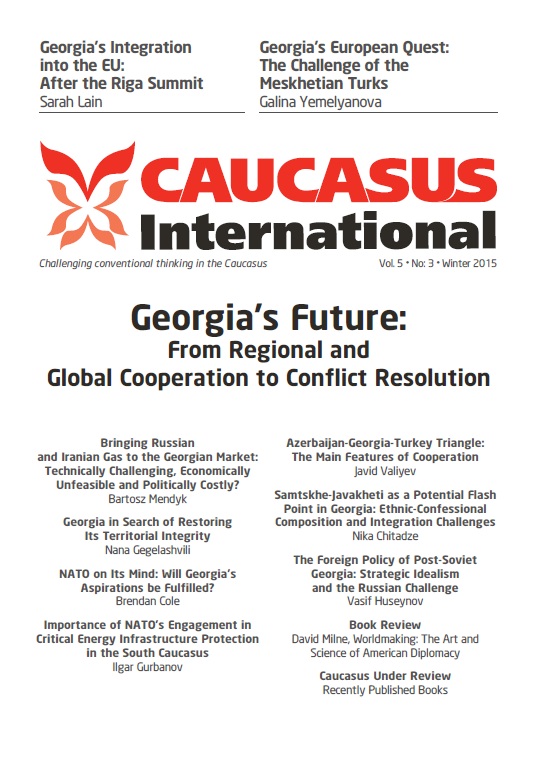Georgia’s Integration into the EU: After the Riga Summit
Georgia has made significant progress in its move towards European integration. The EU has fully supported this decision, but the Ukraine crisis has served as a stark reminder of the security risks facing Eastern Partnership (EaP) countries in terms of their economic and political choices. The EU should be more nuanced in its approach to Georgia to ensure its own de-politicization of the issue and greater clarity around what it is, and is not, aiming to achieve through European integration initiatives. This paper suggests that this should not only be to combat Russian false messaging on the issue, but also to reassure the Georgian people of why they are committing to the EaP. As a corollary, the EaP strategy should also make a greater connection between economic stability and increased resilience against certain security threats. Georgia is now facing a somewhat uncertain political future domestically due to the parliamentary elections in 2016. Without an attempt at a more defined strategy, therefore, the EU could risk greater disillusionment within Georgia as to the benefits of the EaP.
Latest news
- 03/17/2020 Call for Submission: “Non-Alignment Movement and Its Perspective in International Affairs”. Deadline: 1 July 2020 2625 views
Popular articles
- 02/24/2020 The Role of Irredentism in Russia’s Foreign Policy 2536 views
- 02/24/2020 Construction of sub-national identity vis-à-vis parent state: Gagauz case in Moldova 2218 views
- 02/24/2020 The Conflict in Ukraine - The Geopolitics of Separatism and Divergent Identities (Commentary) 2072 views
- 02/24/2020 The Role of the Soviet Past in Contemporary Georgia 2044 views





